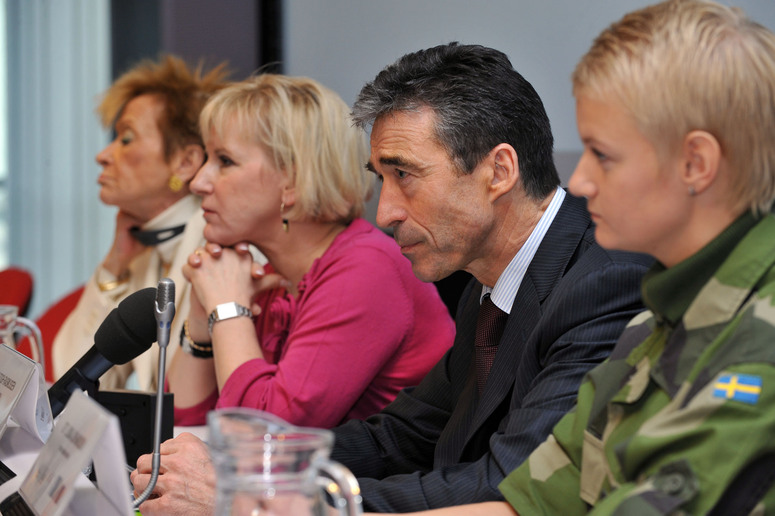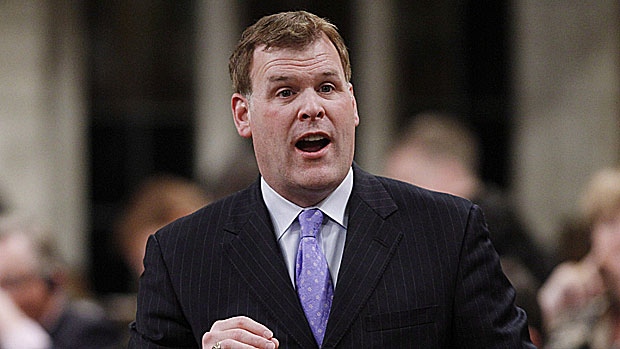 The most recent comments of Swedish Foreign Minister Margot Wallström have landed the country in trouble in the Middle East and its own business community. On January 9th 2015 Wallström tweeted her criticism on the punishment of Raif Badawi, a Saudi blogger who was sentenced to 1000 lashes and 10 years in prison for insulting Islam. This set off a series of actions that led to the end of an arms deal between Sweden and Saudi Arabia that has brought Sweden $567 million since 2011. This is the latest in event in the new activist foreign policy that Minister Wallström has been pursuing since she took office. When Wallström was named as Foreign Affairs Minister as part of the coalition government formed between the Social Democrats and the Green Party led by Prime Minister Stefan Löven she pledged a foreign policy that is based in feminism and human rights which has gone on to anger foreign and domestic actors alike, specifically in Israel, Russia, Saudi Arabia, and the Swedish business community.
The most recent comments of Swedish Foreign Minister Margot Wallström have landed the country in trouble in the Middle East and its own business community. On January 9th 2015 Wallström tweeted her criticism on the punishment of Raif Badawi, a Saudi blogger who was sentenced to 1000 lashes and 10 years in prison for insulting Islam. This set off a series of actions that led to the end of an arms deal between Sweden and Saudi Arabia that has brought Sweden $567 million since 2011. This is the latest in event in the new activist foreign policy that Minister Wallström has been pursuing since she took office. When Wallström was named as Foreign Affairs Minister as part of the coalition government formed between the Social Democrats and the Green Party led by Prime Minister Stefan Löven she pledged a foreign policy that is based in feminism and human rights which has gone on to anger foreign and domestic actors alike, specifically in Israel, Russia, Saudi Arabia, and the Swedish business community.
One of her first acts was to recognize the State of Palestine claiming that she hoped it would put the Israel and Palestine on a level playing field and allow peace talks to resume. Sweden was the first European Union Member in Western Europe to do so. This garnered her praise from Palestinians and many Arab nations as well, earning Wallström an invitation to speak at the Arab League Summit. This act also came with a penalty with Israel withdrawing their ambassador from Sweden and summoning the Swedish ambassador to express disappointment with their government. Netanyahu even claimed that there was a conspiracy among Nordic states to remove him from power and Foreign Minister Lieberman criticized Sweden’s lack of understanding of Middle East relations.
Her next high profile act was in regards to Russia. In an opinion piece published on March 6th 2015 she described the threat Russia posed to European peace and what the Swedish government hoped to see happen: a united and peaceful Europe, support for the reform and integration of Ukraine, and a policy towards Russia that condemns aggressive action. The Russian Embassy in Stockholm was quick to respond, claiming that Sweden and other EU countries had pressured Ukraine into joining the EU which necessitated Russia seizing parts of Ukraine. This exchange followed Wallström’s interview after the killing of Russian opposition politician Boris Nemtsov which she called an execution and Putin’s administration a ‘reign of terror.’ With evidence that Russian submarines have entered Swedish waters Swedes have grown wary of Russia and its military and have even named Russia to be Sweden’s greatest threat. Wallström has plenty of reasons to appease Russia and not draw attention to certain events in the country but she refuses to do so as that would be abandoning her activist foreign policy.
Her most recent clash with Saudi Arabia is the event that will have real consequences for Wallström, both abroad and in Sweden. As mentioned earlier Wallström has been a vocal critic of the regime’s treatment of dissidents and women’s rights. She was scheduled to speak at the Arab League Summit as a result of her government’s acknowledgement of Palestine; however this invitation was withdrawn after she made these comments. The Organization of Islamic Cooperation (OIC) issued a statement saying that Saudi Arabia cannot be judged based on one perspective. Saudi Arabia and the United Arab Emirates both temporarily withdrew their ambassadors and Saudi Arabia stopped issuing visas for Swedish nationals and refused to renew any current visas. Sweden has since decided not to renew an arms agreement that has brought millions to the Swedish economy since it was renewed in 2011. When it is taken into account that Sweden was the world’s 12th largest arms exporter in 2013/14 and Saudi Arabia was the second largest importer in that time these actions do have real economic consequences to them.
Saudi Arabia is Sweden’s fourth largest market outside of Europe, importing a total of $1.6 billion CAD last year. To say that this will hurt the Swedish economy will be an understatement. 31 business representatives of Swedish companies have signed a letter saying that this will hurt Sweden’s reputation and its ability to do business as a bilateral trading partner. Saudi Arabia managed to get the OIC to support them against Sweden’s remarks so it is not unfeasible that they could also get other Arab nations to take economic action as well. Saudi Arabia holds a lot of power in the Middle East and if they get other countries to begin blocking exports then Sweden could be in some economic trouble since their exports to the Middle East totalled $4.6 billion CAD last year.
This has not seemed to affect Ms. Wallström though. She has issued no apologies for what she said, despite intense pressure to do so. She is sticking to her principles which is endearing her to voters who do not believe that human rights should be sacrificed for economic reasons. This may hurt Sweden’s chance at a seat on the UN Security Council which is an important issue for the Swedish government and yet Wallström still hasn’t apologized.
Foreign Affairs Minister Margot Wallström declared an ethical foreign policy that would be based in human rights and feminism and she is sticking to that policy. She has been a high profile European critic on humanitarian issues and has stood her ground so far. In a world where decisions are driven by economic incentives it is inspiring to see someone who refuses to bend her principles. Wallström’s actions will have consequences, but in the meantime she is making her statement.




